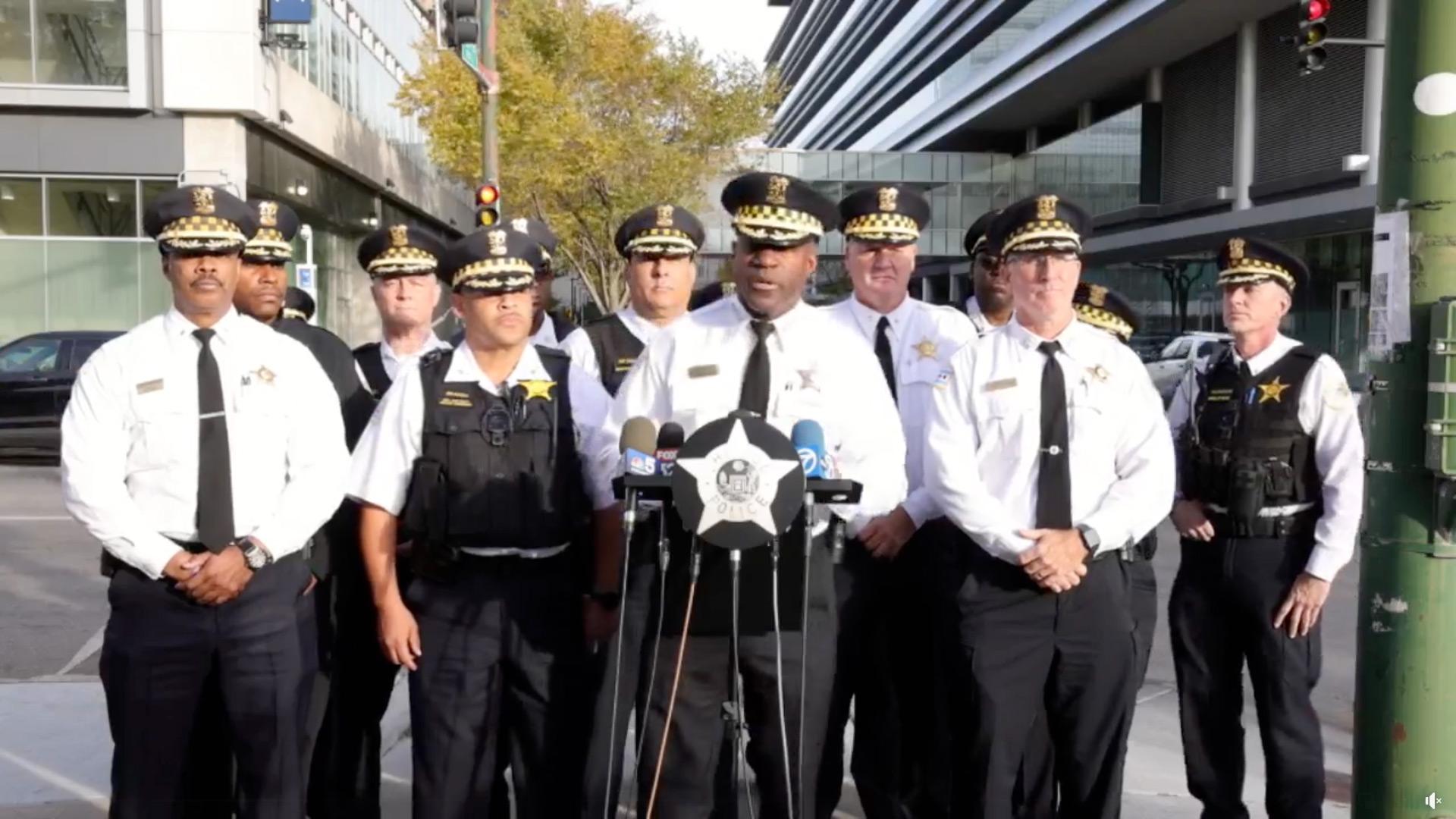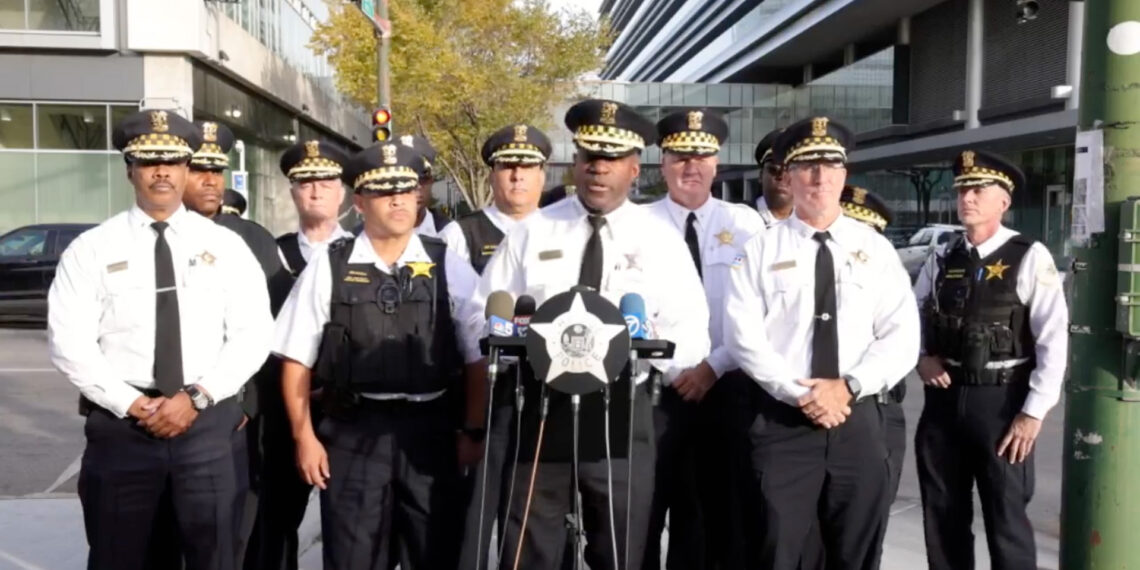[ad_1]

Larry Snelling, a Chicago native with over 30 years of experience in the Chicago Police Department (CPD), recently discussed the challenges facing the department and his future goals after assuming the role of superintendent in late September.
In an interview with WTTW News, the city’s top cop acknowledged the deep-rooted issues within the department, including community trust, court-mandated reforms and accountability.
“Everybody in Chicago is a stakeholder right now,” Snelling emphasized. “Nobody can sit on the sidelines. We need the support of others, we need the backing of others because I’m going to make sure we’re supporting everybody else in this city.”
One of Snelling’s primary challenges is rebuilding trust between the police and the community, a task made more complex by ongoing court-ordered reforms under the consent decree.
Indeed, a recent report from the independent monitoring team highlighted concerns raised by residents regarding alleged abuses of authority by officers during stops and searches.
In response, Snelling proposed additional training for officers to ensure stops are based on reasonable suspicion and probable cause.
“There has to be a level of accountability all the way up the chain,” he said, discussing the importance of training and leadership messaging.
Regarding the consent decree, Snelling expressed a cautious approach.
“We don’t want to just say that we’re in compliance, we want our officers to actually be in compliance. We don’t want to put our officers through training; we want our officers to be trained.”
Snelling also addressed the controversy surrounding the ShotSpotter technology, previously targeted for termination by Mayor Brandon Johnson.
Snelling defended the system, asserting that it aids in responding to violent crimes and providing timely assistance to those in need.
“If we, as police officers, have the opportunity to get to a job immediately, even prior to a 9-1-1 call, it gives us the opportunity to get to that job and maybe, maybe apprehend someone who is shooting,” he said. “But bigger than that, if there’s someone who’s been shot, it gives us the opportunity to render live-saving aid if we get there ahead of time.”
Progressive city council members, on the contrary, argued that the system contributes to over policing of minority communities, and is largely ineffective at alerting officers to shootings, citing an audit by the city’s inspector general.
Ultimately, it is a “conversation” that must be had with the mayor, Snelling asserted.
The new superintended also acknowledged the high crime rates in the city, arguing for an “aggressive Constitutional policing” approach, while at the same time maintaining scrutiny on police conduct.
“I can’t worry about political climate. I understand political climate. But if that political climate forces me into allowing my officers’ response to be rendered ineffective, then I’m not doing my job,” the superintendent said.
Additionally, as the city faces a surge in migrants seeking shelter and an increase in certain crimes, Snelling said the department is looking to adopt a variety of technological solutions.
He went on to highlight the role of technologies like license plate readers and cross-district communication strategies to address crimes like car thefts and robberies, especially considering reform laws that could limit officers’ response.
For instance, while Snelling stated that officers would “have to weigh the risk to the public” before engaging in a pursuit, technologies such as helicopters could take over that responsibility instead.
“We see where these individuals go, and now we can deploy dispatch officers to that location to apprehend these individuals, which would save us a lot in civil litigation if we know that this person crashes into something or that pursuit leads to an accident that hurts a civilian or pedestrian,” Snelling added.
In addition, technology could also help the CPD cope with its loss in manpower in recent years.
According to department statistics, the CPD is down 1,500 officers from just a few years ago.
Despite these challenges, Snelling is determined to repair the relationship between the police and the community.
“If we don’t work together as a team … it’s going to be hard to get the city back on track,” he stressed. “We cannot be siloed. We have to start trusting each other. We have to start building these relationships and working together.”
In the coming months, Chicago residents will be watching closely to see if Snelling’s extensive experience and vision for collaboration can bring about positive change in the city’s law enforcement and community relations.
[ad_2]




